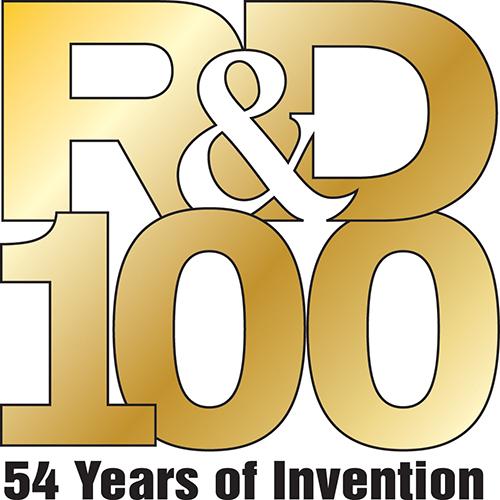
R&D Magazine’s R&D 100 Awards, established 54 years ago, recognize 100 technologies and services introduced in the previous year deemed most significant by an independent panel of judges. This year’s winners received the awards at a Nov. 3 event in Washington, D.C.
A brief description of the Molecular Foundry’s award-winning technologies follows:
Polymers of Intrinsic Microporosity (PIM) Membrane for Long-Lived Lithium-Sulfur (Li-S) Batteries
Next-generation lithium-sulfur (Li-S) batteries can potentially reduce costs as well as fire and environmental risks, compared to other battery technologies, and Molecular Foundry researchers have developed polymer membranes that enable extended battery-cycle life. The technology, which uses a type of polymer known as a PIM (polymer of intrinsic microscopy), selectively transports lithium ions through tiny pores while blocking larger polysulfide ions. This type of membrane can cost one to two orders of magnitude less than ceramic and other types of membranes per unit area, and also permit higher power.
Researchers report energy densities in its devices two times higher than a competing industry-leading technology, and this metric is important for reducing costs in grid-level energy storage devices. Also, the research team notes that sulfur is an environmentally preferred alternative to toxic heavy metals that are used in some batteries.
Brett Helms of Berkeley Lab’s Molecular Foundry led the development effort, which also involved research at the Joint Center for Energy Storage Research. Work on this PIM led to the creation of a company called Sepion, now a part of a technology entrepreneurship program at Berkeley Lab called Cyclotron Road.
Sustainable, Affordable Fluoride Removal (SAFR)
Globally, some 200 million people are at risk of developing irreversible crippling deformities (such as dental/skeletal fluorosis) and other detrimental health effects by drinking groundwater contaminated with toxic levels of naturally occurring fluoride. Although many fluoride-removal technologies have been proven effective in the laboratory, few are sustainable in rural remote areas for various reasons, including cost and reliability.
Ashok Gadgil, of Berkeley Lab’s Energy Technologies Area and a Molecular Foundry user, developed Sustainable and Affordable Fluoride Removal (SAFR), which uses mildly processed bauxite, an aluminum-rich ore available ubiquitously worldwide, as an adsorbent for remediating field-relevant fluoride concentrations in groundwater to reach the 1.5 milligrams-per-liter limit established by the World Health Organization as safe for drinking.
Because SAFR eliminates the costly and wasteful processing involved in refining bauxite into higher-end products for fluoride removal, it is a more sustainable method that also has lower energy costs and lower carbon emissions.
The full list of winners is here: https://www.rd100conference.com/awards/winners-finalists/year/2016/

